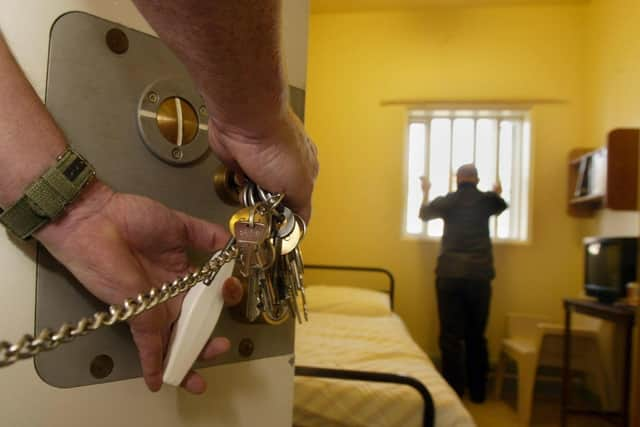We need to talk about what's wrong with putting people on remand - Karyn McCluskey
Article 5 – the right to liberty and security – protects us from having our freedom arbitrarily taken away. There are of course exceptions - when someone is detained in accordance with the law.
Removing someone’s liberty is necessary when considering the danger some people pose to others: that imminent risk of serious harm. It should always be a carefully considered and balanced matter, which is why the judiciary in Scotland regard this as one of the most serious decisions they are required to take and they do so independently without fear or favour every day.
Advertisement
Hide AdAdvertisement
Hide AdThe current prison population in Scotland is around 7,500 of which around 30% are people detained ahead of their trial date – meaning they’re on remand. A limited number are convicted and awaiting sentence.
Every day in Scotland, more than 2,200 people are in custody - on remand – at this point innocent.
Research outlines the impact on people on remand, from the loss of employment and accrual of rent arrears to interruption of health care and disconnection with their children, families and communities.
Of course public safety is the primary concern where there is a risk to public protection. But many are remanded for many other reasons such as not turning up at court on numerous occasions.


The granting of bail – to keep people in the community, is not a simple matter either. It can involve a range of supports and mechanisms to ensure that people comply, such as to be of good behaviour and not to harass witnesses. The justice system deals with complicated people often with acute and chronic challenges around mental health and addiction. Managing people in the community can be difficult, but it can be done.
Add to all of this, the victims, the people harmed by the actions of others, how and where is their voice heard and represented?
Change is needed around this system and the recently published Bail and Release from Custody (Scotland) Bill sets out ways in which the decisions around bail can be better informed using information from local authorities.
It also sets out plans to record, in court, the reasons behind bail and remand decisions. If we don’t understand why people are remanded, we can’t begin to address those factors and introduce improvements.
Advertisement
Hide AdAdvertisement
Hide AdWe can do much more to help people stay in their community, safely and supported, without the need for remand. We can also deploy technologies such as remote monitoring with GPS and alcohol monitoring which advises when someone’s drinking may lead to harm.
Countries such as Finland, Sweden and Norway have introduced these measures and more, resulting in fewer people in the justice system and a significant reduction in numbers in custody. It’s complicated and requires us to fund community services and the third sector appropriately to ensure success.
The Howard League in Scotland wrote about the scandal of remand – highlighting the long lasting and sometimes catastrophic impact of a period in prison – their insights remain as pertinent now as they did a year ago. Out of sight, out of mind can’t ever apply to those deprived of their liberty.
